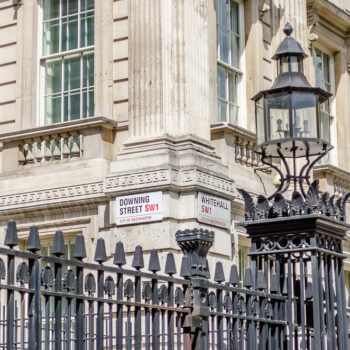Given the central importance of energy efficiency in meeting the UK’s climate targets,the Clean Growth Strategy’s ambition for home energy renovation – for all homes to achieve an Energy Performance Certificate rating of C by 2035 – is a good start. However, policy and investment to achieve it is still severely lacking. While it varies considerably within the UK, the annual gap that needs to be filled by a combination of public and private investment to 2035 is £4.5bn.
Thought and practice on how to effectively drive greater demand for energy efficient renovation – including by harnessing the large market for housing repair and maintenance – is well established and needs to be acted on in the UK. Case studies from peer countries France, Germany, the Netherlands – and Scotland owing to its own unique approach – demonstrate different combinations of policies that appear to be more effective at raising renovation rates and unlocking more private investment.
All have clear, actionable plans and goals for renovation and are achieving higher renovation rates; all have policy mechanisms explicitly designed to lever in private investment, and attractive, specialised finance deals that can be combined with widely available capital subsidies on offer; all have set high energy performance standards that if achieved, unlock higher levels of support while needing higher investment from homeowners; and all case studies have national communication campaigns combined with locally relevant renovation advice. Taking into account that the UK has a long track record of energy efficiency policy experience and capability, these case studies show there is no good reason why achieving far greater energy efficiency ambition should be beyond the UK’s reach – but it will require a greater and smarter commitment of public capital investment to achieve.
Now is an important time to capitalise on momentum for greater ambition. Numerous relevant policy steps are being taken by Government following the Clean GrowthStrategy’s publication last October. In March, the retail finance sector, through the Green Finance Taskforce, made strong recommendations to Government for enabling it to mainstream home energy improvements. Crucially, the National Infrastructure Commission has a unique opportunity to make big picture recommendations for greater energy efficiency investment – taking lessons such as those above into account – as part of its National Infrastructure Assessment on July 10.
It must inspire Government to follow up with a more coherent and ambitious approach that treats energy efficiency as a national infrastructure priority and weaves in the steps it is already taking, including those in response to the Green FinanceTaskforce’s work. This encompasses, (1) confirming energy efficiency as a national infrastructure priority, with clear governance arrangements, targets, a long-term action plan and funding, as in Scotland; (2) additional public capital investment of £1bn per year to 2035 – much of it supporting low income households – that can help unlock £3.5bn of private investment, closing the £4.5bn gap; (3) adequate incentivesfor ‘able to pay’ homeowners and landlords, such as lower Stamp Duty for more energy efficient homes and 0% interest loans; (4) robust regulation, strengthening over time towards an EPC rating of C, that requires some homeowners to take action and inspires others to plan and invest for the future; (5) a long-term approach to delivery in which local authorities play a core role in tackling fuel poverty, creating demand and growing local supply chains; and (6) strong advice provision and quality assurance and safety standards.


